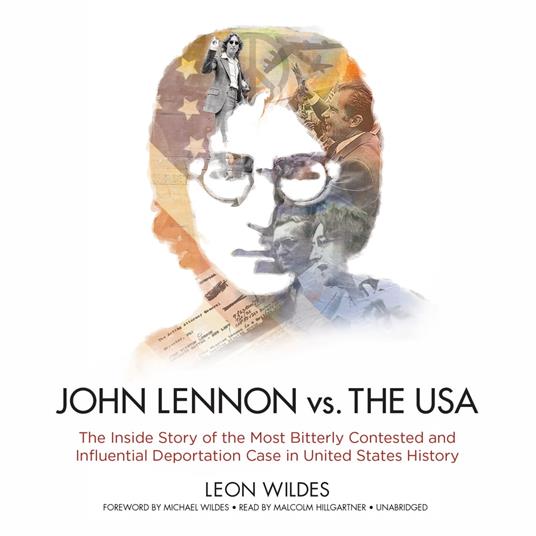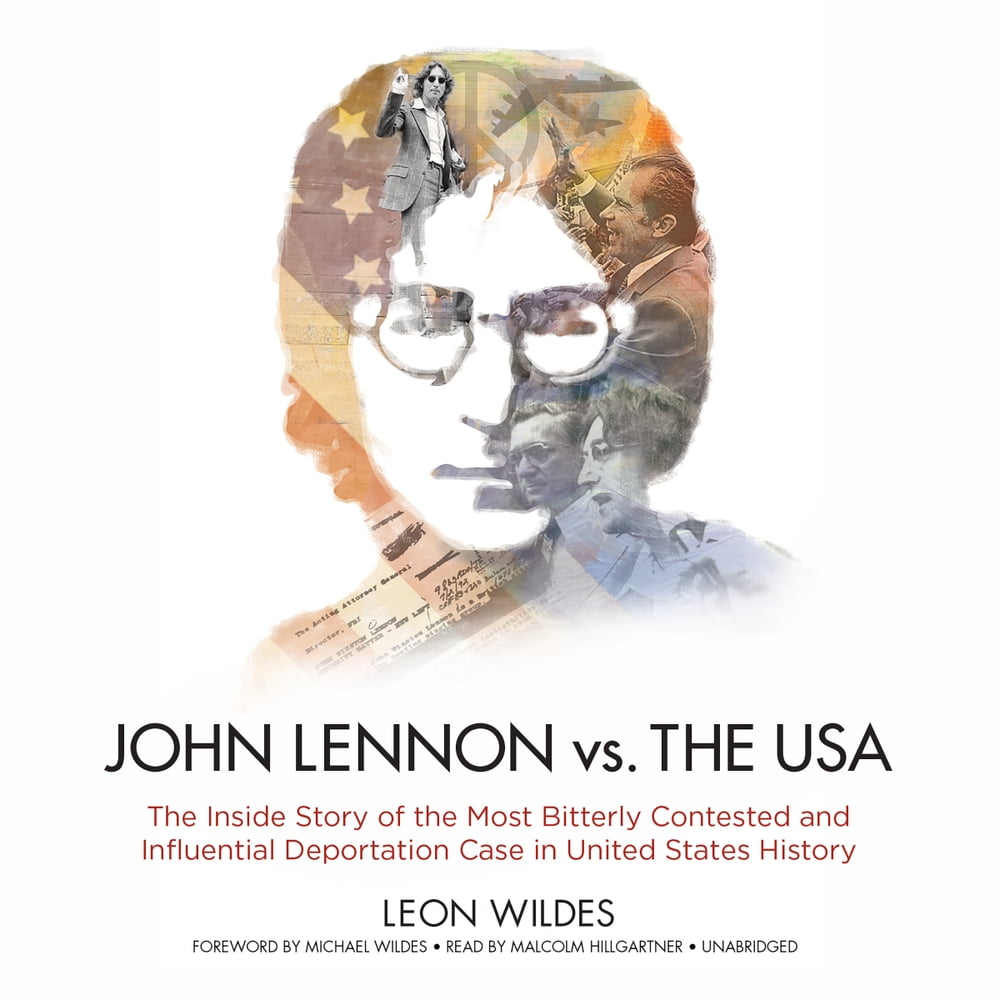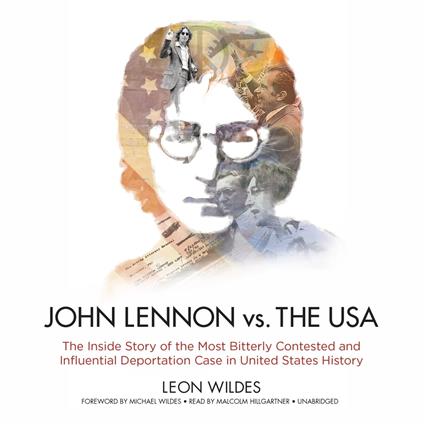John Lennon vs. the USA
At a time when the hottest issue in US immigration law is the proposed action by President Obama to protect from deportation as many as five million illegals in the United States, the John Lennon case takes on special relevance, notwithstanding the passage of forty years since he was placed in deportation proceedings. This is John and Yoko’s incredible story, as told by the lawyer who fought in the front lines. In 1972 President Richard M. Nixon learned that John Lennon was visiting the United States. Nixon was told that Lennon’s continued presence here could be catastrophic to his plan for reelection. Lennon, who had just made an appearance before an audience of fifteen thousand young fans at the University of Michigan at Ann Arbor, was rumored to be planning to join Jerry Rubin to lead a series of rock music rallies to “Dump Nixon” in anticipation of the 1972 Republican National Convention. The special significance of the 1972 convention was the fact that this would be the first national election in which the voting age was reduced from twenty-one to eighteen, adding five to ten million new prospective voters. Nixon was not popular with this young group. Lennon was. Indeed, Senator Strom Thurmond had just written a Dear John letter to Nixon’s attorney general, John Mitchell, suggesting that deporting Lennon quickly would be an “appropriate countermeasure.” John Mitchell was the head of CREEP, the Committee to Reelect the President, whose day job was as attorney general, in charge of deporting illegal aliens. Following the Watergate-style advice of his legal counsel, John Dean, Nixon decided to “use the available political machinery to screw our political enemies” and proceeded in earnest to deport Lennon and his artist wife, Yoko Ono. Lennon and Ono consulted Leon Wildes, an expert in the field of immigration law, about the reason for their visit: their efforts to locate and secure custody of Kyoko, Yoko’s American eight-year-old child by a prior marriage. American courts had granted Lennon and Ono custody, and Ono’s prior husband violated the order to produce the child in court as ordered. Notwithstanding the Lennons’ humanitarian requests, extensions of stay as visitors were denied, the Lennons were placed in strict deportation proceedings, and the US commissioner of immigration instructed the Immigrant and Naturalization Service (INS) not to adjudicate the “outstanding artists” applications filed for Lennon and Ono by Wildes until after the Lennons were deported. Wildes kept the Lennons here for five years, despite the efforts of the government to deport them. During all that time, the Nixon administration invariably claimed that the Lennons were being treated like all other aliens and that it had no authority to make exceptions to their strict enforcement and removal of deportable aliens. Wildes invoked the power of the federal courts to discover the existence of the “non-priority program,” a hidden program authorizing the INS to defer the removal of illegals who might sustain serious hardship if removed. Wildes’ success in securing copies of thousands of applications granted such non-priority status ultimately resulted in the grant of that humanitarian remedy to Lennon. Lennon was eventually also granted lawful permanent residence status, overcoming the effects of his old British marijuana conviction. Although Wildes did not even know who John Lennon and Yoko Ono were when he was originally retained, he developed a close relationship with them both during the five-year period he represented them and thereafter.
-
Autore:
-
Narratore:
-
Durata in (hh:mm:ss):07:53:00
-
Anno edizione:2016
Formato:
Gli Audiolibri venduti dal nostro sito sono in formato MP3 e protetti da un DRM proprietario Kobo.
Compatibilità:
Gli Audiolibri venduti dal nostro sito possono essere ascoltati sul tuo smartphone o tablet tramite la APP gratuita Kobo Books scaricabile da iOS o Android. Gli Audiolibri non possono essere scaricati in locale o trasferiti su un client di ascolto diverso da quello fornito tramite Kobo. Non è possibile ascoltare gli audiolibri con la Kobo APP Desktop. Puoi ascoltare gli Audiolibri tramite determinati eReader Kobo, utilizzando cuffie o casse con Bluetooth. Visita la pagina degli eReader per avere maggiori dettagli.
Cloud:
Gli Audiolibri venduti singolarmente dal nostro sito sono immediatamente sincronizzati sul tuo account personale in automatico. Successivamente all'acquisto, sono subito disponibili all'ascolto tramite i client di lettura Kobo compatibili.
Clicca qui servissero ulteriori informazioni



